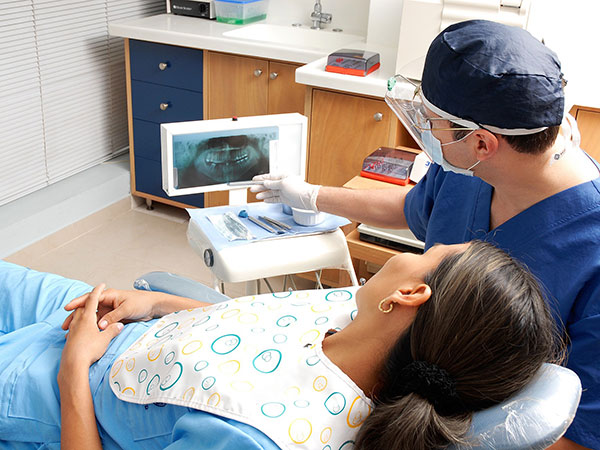
What is a Removable Partial Denture?
A removable partial denture (RPD) is a dental prosthesis that is used to replace multiple missing teeth. If a patient is not a candidate for a fixed dental bridge, or a dental implant, then an RPD is an option. Generally, you will wear an RPD during the day in order to be able to eat comfortably and to be able to smile esthetically. At night, you remove the RPD to clean it and to give the tissues in the mouth a break from wearing the prosthesis.
Removable Partial Dentures in Thornhill, Toronto, ON
Generally speaking, there are two types of removable dental prosthesis – removable partial dentures for people who are missing some of their teeth, and complete dentures for people who are missing all of their teeth. This page covers removable partial dentures (RPDs); you can learn more about complete dentures (CDs) on our complete dentures page. *Note that patients who are considering removable or complete dentures should also consider dental implants in their decision-making process. Dental implants are fantastic for replacing a small number of missing teeth, while implant dentures can be a life-altering solution for patients with loose or ill-fitting dentures (especially lower dentures).
How are RPD’s made?
An RPD can generally be made in two ways. The first type is made out of metal (cast) and has metal clasps to hold the denture in. The second type is made out of a flexible (i.e. flexite or Valplast) material and is used in places such as in the front of the mouth where esthetics are crucial. Compared to flexible RPDs, Metal RPDs are stronger, better to eat with, and are much easier to adjust if the prosthesis needs to be tightened, or if a tooth needs to be added at a later date. In some cases, we will fabricate a combination-type of partial, where we use the metal substructure of a cast RPD along with the flexible, esthetic clasps of a flexible RPD. There are advantages and disadvantages of this approach which we will be happy to discuss with you.

Is an RPD a Bridge?
No. Many people call removable partial dentures “bridges” – however, in dentistry we use the
word “bridge” to refer to a fixed bridge in your mouth. You can see a picture of a dental bridge
in our bridges section.

Complete Dentures in Thornhill, Toronto, ON
Complete Dentures in Thornhill, Toronto, ON
A complete denture is a dental prosthesis that is for patients who no longer have their own teeth. You wear it during the day, and you take it out at night. You can contrast complete dentures with removable partial dentures (RPDs) – both are removable prosthesis, but RPDs are designed for patients who have some of their teeth remaining.
Advantages of complete dentures
The advantage of a complete denture is that you will be able to smile, speak, and function more than you would with only a few teeth remaining. Many patients do very well with complete dentures, but it’s important to know that there are alternatives such as dental implants.
Alternatives to complete dentures
When it comes to complete dentures, most patients are happier with their upper dentures as compared to their lower dentures. The reason for this difference is that the upper jaw bone naturally resorbs more slowly than the lower jaw bone; thus, there’s usually more bone on the top to help hold in a denture.

Disadvantages of complete dentures
While you will be able to chew and eat with a complete denture, your biting ability will be less than it was when you had natural teeth. In addition, the ability for the dentures to remain in your mouth depends upon how much bone you have left. Patients often talk about “not wanting to use paste” in order to hold their dentures in place – and we agree – we want our patients to wear their dentures without adhesive (such as Fixodent or Poli-Grip). The problem is that for patients who have very resorbed ridges (that is, a high amount of bone loss in the jaw bones), it’s difficult to make a denture stay without adhesive.
For patients who have a hard time keeping a lower denture in due to bone loss, a fantastic
solution is what is called an implant-retained denture. You can read more about implant-retained
dentures, but the idea is that we place two dental implants in the lower jaw and use them to help
snap and hold a denture in place.
